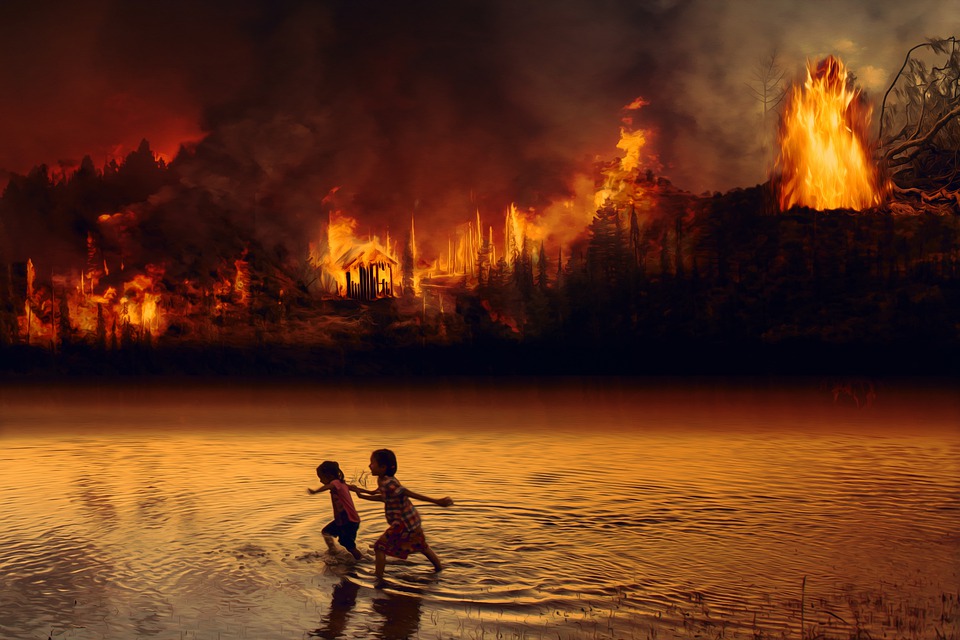The Amazon is burning. Satellites from the National Institute for Space Research recorded over 30, 000 fires in the rainforest in the month of August, and the fires show no sign of abating. It has been reported that fire activity in the rainforest has not been this severe since nearly a decade ago. The lungs of the earth are burning. But where will it stop?
President Bolsonaro, is responsible for sustaining the environmental policies of Brazil, although he has displayed a total lack of concern for Brazil’s environmental security. Arising from the knowledge of his policy agenda, many experts have pinned the severity of these fires on Bolsonaro’s disregard for the environment.
The Amazon rainforest is not only the Earth’s richest source of biodiversity, but also contributes more than 20% of global oxygen, as President Emmanuel Macron recently stated in the hopes of mobilizing support for the protection of the rainforest. In addition to providing oxygen, trees in the Amazon equally store carbon dioxide emissions from the atmosphere, one tree being able to hold the capacity of four metric tons of carbon dioxide. Due to burning, these trees release this carbon back into the atmosphere. If trees continue to burn, the quality of oxygen in Earth’s atmosphere will continue to deplete, while the carbon dioxide once captured by these trees will feed global emissions, worsening the already dire impacts of climate change.
Compromising nearly 40 percent of Brazil’s land, the Amazon rainforest has been used for decades as an economic resource, with farmers in the region encouraged to burn large swathes of trees to create areas for agriculture or logging. One of Bolsonaro’s recent policies included rolling back regulations to increase the availability of land for farmers. Bolsonaro has also reduced the amount of protected areas in the rainforest that were previously exempt from burning, many of which are now fair game for deforestation and agricultural development.
In fact, the loosening of regulations by Bolsonaro seemed to increase morale for farmers who faced difficulties due to environmental regulations and restrictions that impeded their work. Bolsonaro’s policies resonated with farmers and loggers in Brazil, who showed their support by organizing a WhatsApp group to set multiple fires in the rainforest on August 10th, which was deemed as “The Day of Fire”.
With a political agenda driven by profit and disregard for environmental repercussions, Bolsonaro mobilized the support of agricultural workers and industry, which was crucial to his electoral victory and which has resulted in the massive Amazon fires that broke out this summer. Following international backlash, Bolsonaro has pulled back on his policy promises, assuring critics that “farmers and loggers will no longer be allowed to use fires to clear land”. In addition, he sent military troops to combat deforestation. A total shift in his agenda has been brought about by the international response to the fires, and is not at all representative of his overall anti-environment mandate, which is not sustainable for the future of the Amazon.
Bolsonaro’s anti-environmental policies create an obstacle to the long-term maintenance of an environmental security agenda for Brazil, which in turn has international consequences. Environmental security threats such as the fires in the Amazon rainforest affect the global environment, and therefore require a system of collective security to address them. Foreign action through the G7 offered a sum of $20 million to send aid to combat the fires. Although Bolsonaro initially rejected this action on a political basis, the president has since warmed to the offer of foreign aid, due to the persistence of the fires which Brazil has proved unable to resolve on its own.
The Amazon fires show the importance of collective security systems such as NATO, which can play a key role in combating global environmental security threats. On a global scale, individuals have taken action to raise awareness for the Amazon rainforest, using the hashtag #TheAmazonIsBurning. While true, this hashtag can obscure the deliberate nature of the fires, which stem from Brazil’s environmental policies, which Bolsonaro has uprooted completely. Brazil’s government must take further action to improve its own environmental policy agenda to contain this problem, as well as those that will arise in the future, both through international collaboration and a more open approach to environmental policies. Bolsonaro must create a new environmental sector within the government that deals with issues such as deforestation and reinforce stricter regulations on environmental crimes, such as those that were present in the previous government, in order to discourage farmers and loggers from creating further environmental degradation.
https://globalnews.ca/news/5794191/amazon-rainforest-fire-explained/
Featured Image: “Fire Forest Children” (2019), by pixundfertig via Pixabay. Public Domain.
Disclaimer: Any views or opinions expressed in articles are solely those of the authors and do not necessarily represent the views of the NATO Association of Canada.




